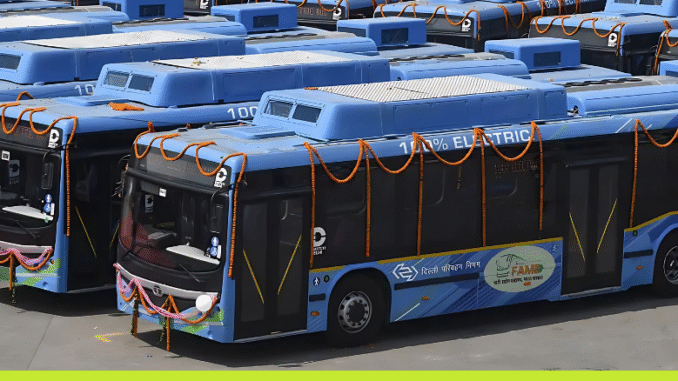
Delhi has laid out one of India’s most ambitious clean mobility targets: by 2026, all public transport—including buses and last-mile fleets—will run entirely on electricity. Chief Minister Rekha Gupta announced the vision under the city’s second EV Policy (“EV Policy 2.0”), aiming for one in three vehicles registered to be electric and dramatically cleaner air for residents.
The new initiative extends the successful 2020 EV policy, which brought incentives, charging infrastructure, and swift regulatory action. Now, the focus is on upscaling: broadening charging networks, fostering a vibrant market for both two-wheelers and heavy-duty e-mobility, and instilling a culture shift in public transit usage.
Delhi’s framing of EV adoption as central to pollution reduction and livable urban futures is seen as a model for megacity climate leadership in India and across Asia. The policy consults extensively with users and industry, aiming to minimize supply chain disruption and ensure smooth transition. The target—making every third vehicle electric—represents India’s boldest step yet to embrace sustainable mobility at metropolitan scale.
Stakeholder consensus, forward-looking regulation, continuous incentives, and active consumer education are flagged as the linchpins for turning policy intent into a citywide electric reality by 2026.


